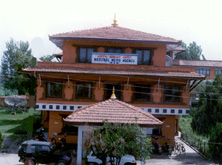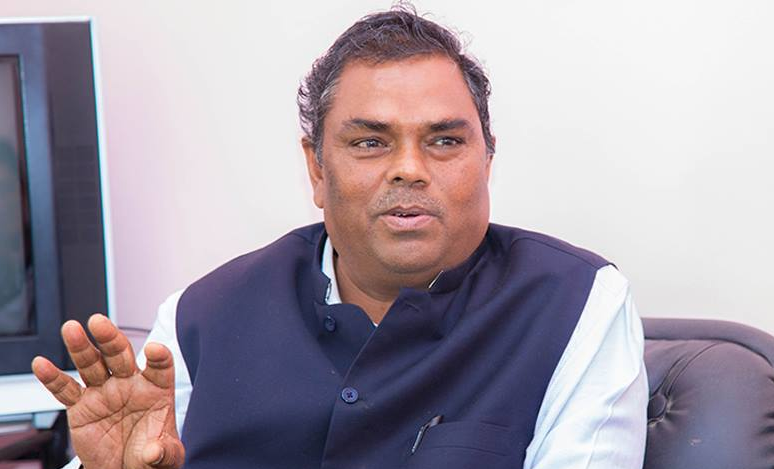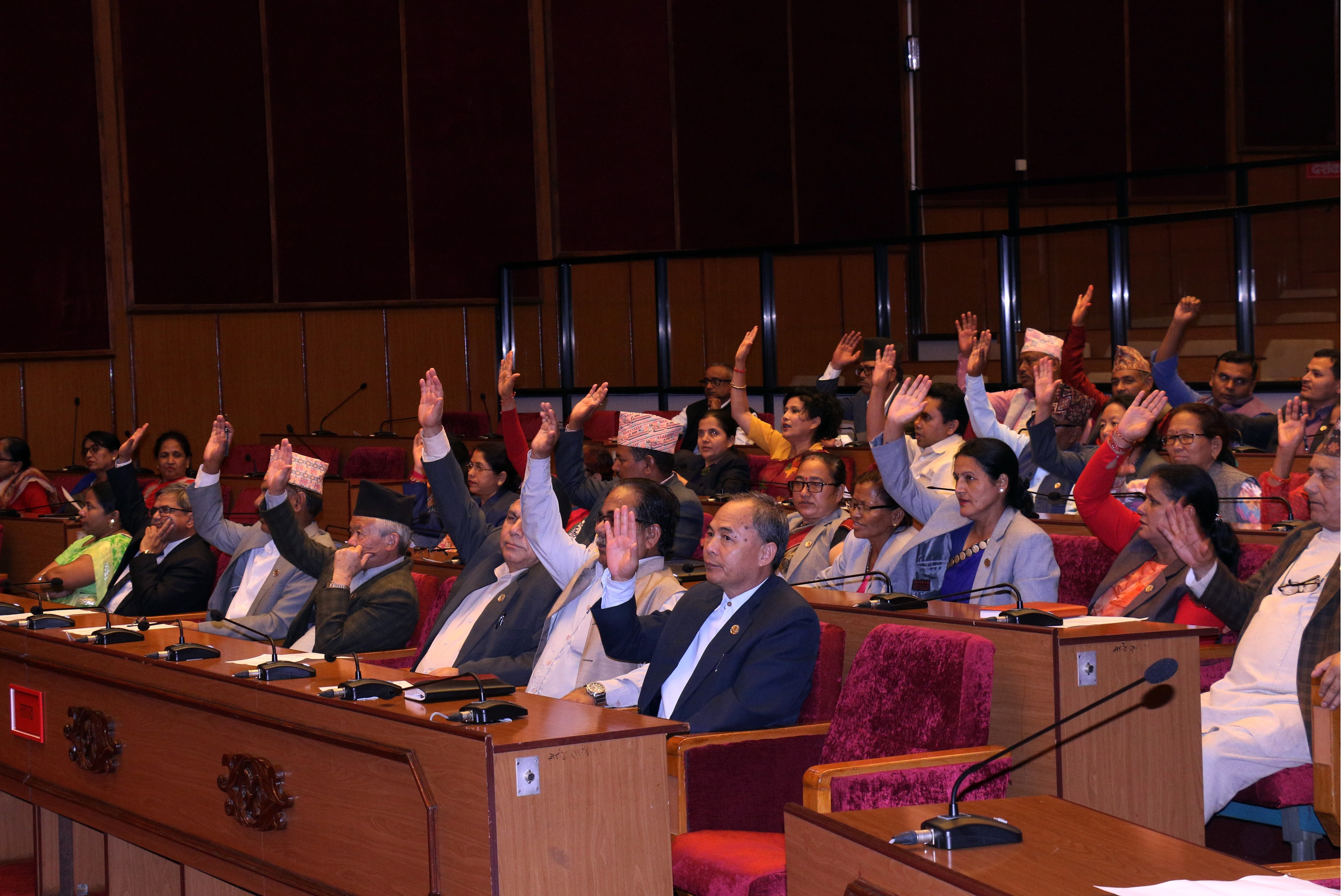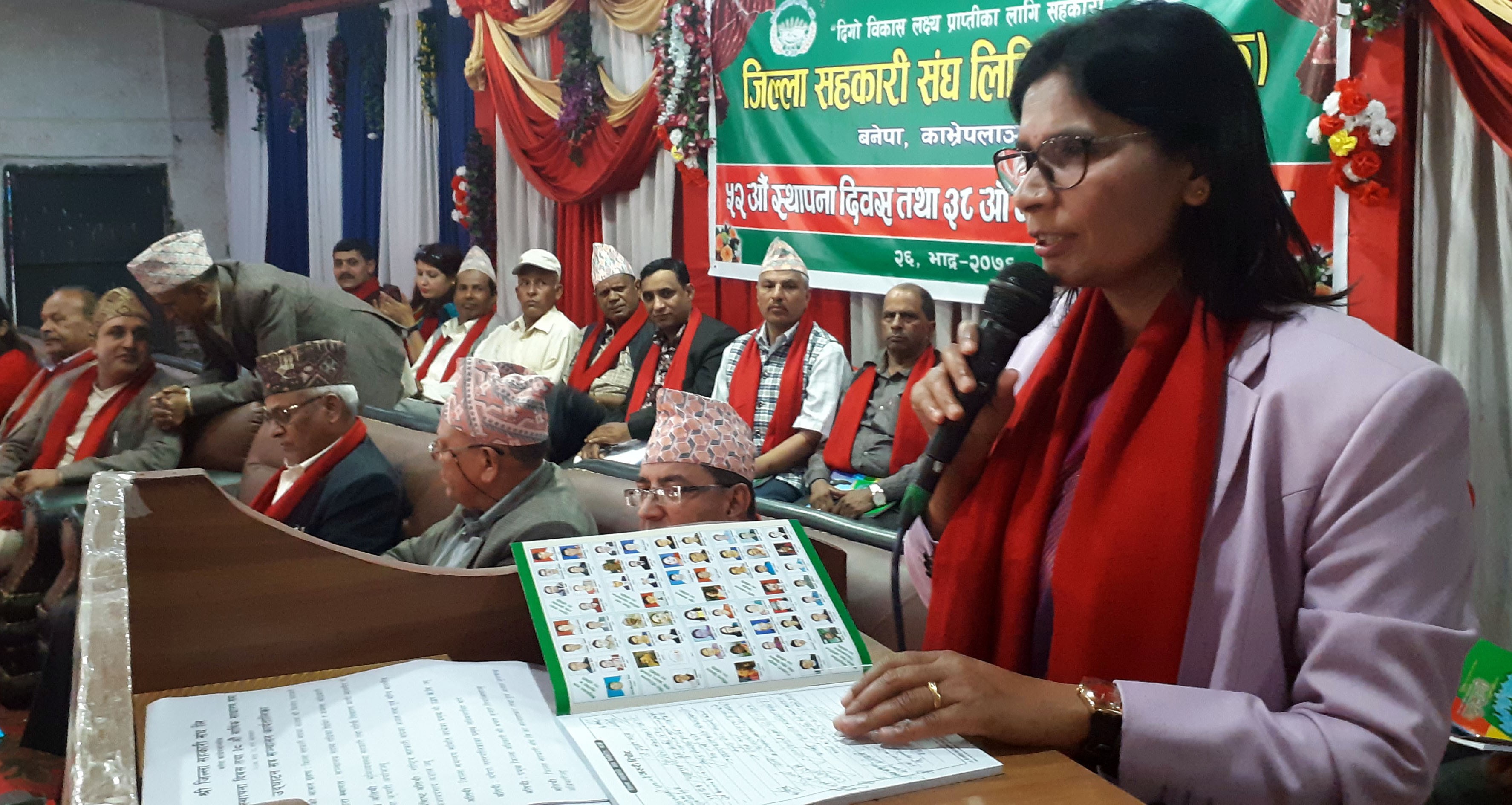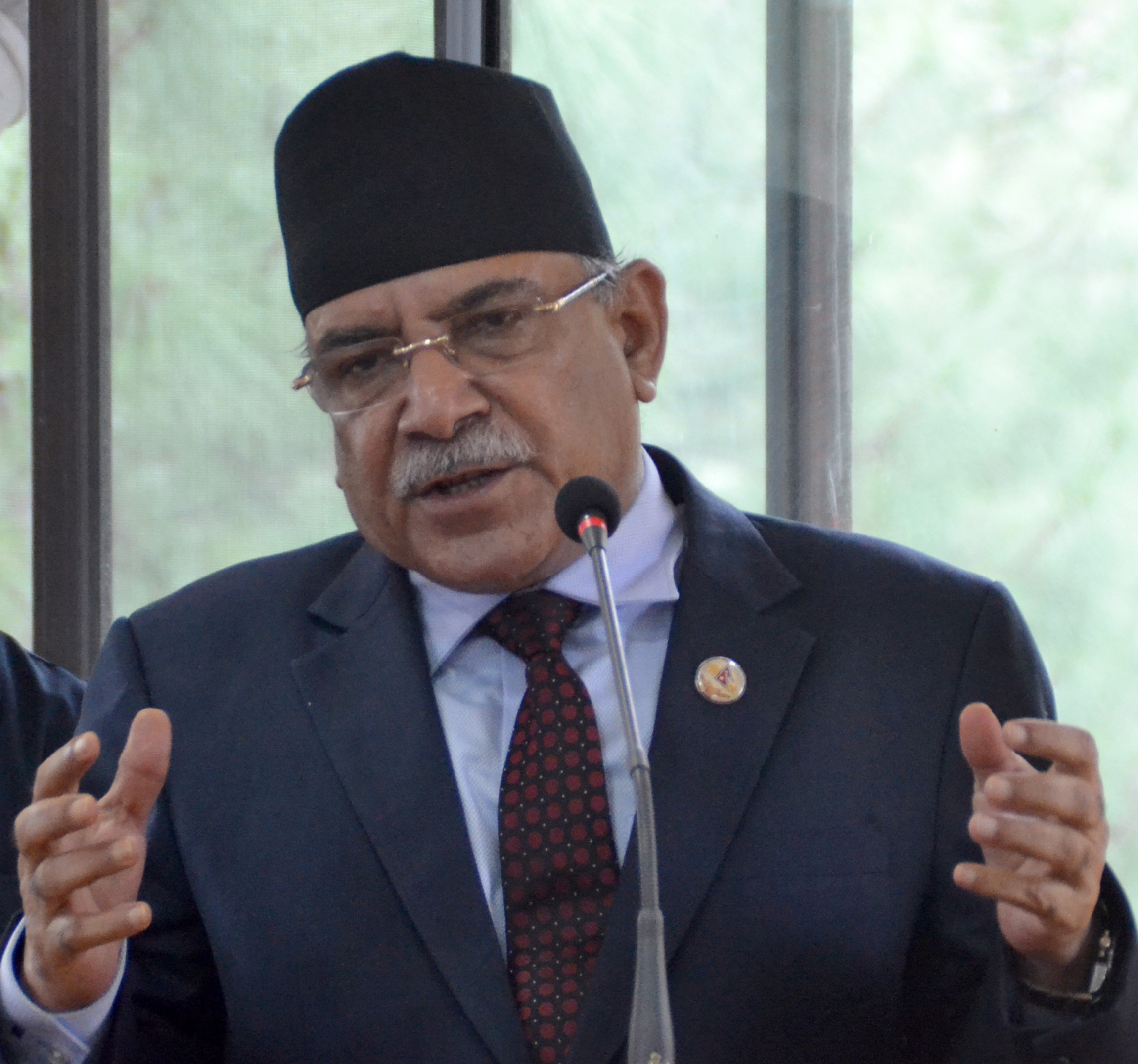Let's act in unison for the protection of human civilization: DPM and High Level Committee Coordinator Pokhrel
Kathmandu, April 2 : The government has issued a stay at home order- lockdown till April 7 in order to contain coronavirus. There is no other effective option than the lockdown at present to protect people. Deputy Prime Minister and Defense Minister Ishwor Pokhrel is heading the high level coordination committee on prevention and control of COVID-19. The National News Agency (RSS) had taken a special interview with DPM and coordinator Pokhrel on how the government was working to cope up with this crisis and what preparedness was made.
RSS Chairman Harihar Adhikari Shyamal and reporter Ramesh Lamshal took the interview at DPM's office in Sinha Durbar on Tuesday. Here is the excerpt:
After the government enforced lockdown, many Nepalis have crowded at border demanding entry. What's the government doing to address their problems when it allowed entry for once?
We initially banned the people's movement via Nepal-India and Nepal-China borders. It is effective only for people's movement not for transport of goods and surveillance. The decision is not for the sake of certain section of society nor for the party in the government but for the entire people. Decisions are directed by need, not sentiment. It is for everyone's protection.
Although our people's demand to enter Nepal from India at a time of crisis must be respected, only sentiment does not work here. It is also taken positively by the Indian side too. We had decided to close the border before India imposed lockdown. They were allowed entry once in view of the pandemic, but on condition of quarantine stay. However it was not fully implemented in some areas.
We later urged those (Indians) in Nepal and Nepalis in India to stay in respective places. Arrangement of food and shelter to them is managed by both countries- India to Nepalis and Nepal to Indians. If the Indian government or its Embassy wants their people back, we allow it. If not, we don't ask them to leave citing safety, but provide facility within Nepal. The government has made it clear with Indian government.
As you are saying it, it is not fully implemented in practice. What's your response to it?
Now on wards, it will be practically implemented. It might not have been communicated well. It works well once the talk is held at higher level.
In terms of addressing people's sentiment too, it may sound illogical to now allow them enter home?
Here, being sentimental does not work. Present situation is different- safety of entire nation and the people. Making a decision in haste can be disastrous. Clear decision is needed not the vacillation with 'if', 'but'. After the agreement on high level leaderships between Nepal and India, those beyond border would be provided food and shelter by the Indian side and Nepal government to the Indians here.
Some Nepalis have entered the country all swimming in the Mahakali River and many are crowded at border in Kaiali. What about them?
As I stated earlier, the disaster has befallen all of us. One becomes quickly emotional seeing the situation- swimming the river to enter homeland, and homeland bans the entry. But, it warrants further seriousness. We both countries have ensured necessary arrangement for the people stranded in both sides. Isn't it the Nepal government's responsibility- preparedness to crises?
They have been demanding further help from government, saying they had no place to stay. Can't Nepal government address such sensitivity?
It is natural to have adversity in crisis. They might have been chased away. But, they must stay where they are now. We'd already issued notice of lockdown here. They may have come thinking they could be allowed. I respect their aspiration. Awareness and precaution is essential at such stage. Citizen's alertness helps make situation better.
As the COVID-19 risk is growing, those in the frontline- health and medical workers, Nepal Army, Nepal Police, Armed Police and volunteers need adequate safety. And it is said the safety is in dearth. Citing this, they have said it’s difficult to work. And, some have made provocative comments too. What’s your say on this?
This is not only the issue of question-answer. Today, doctors and health workers are in the frontline to combat the infection and face this crisis. Driving ambulances and taking patients in the hospital is also alike. They have been working with full commitment. Their jobs should be respected. By considering this very fact, the government has ensured 100 per cent allowance to them as long as they are involved in this job. Same provision is applicable to those remaining in the second layer too. Insurance of Rs 2.5 million is ensured. We all are ready for sacrifices.
We had not materials for excellent management. Amid such crisis, we brought equipment from China and dispatched them in five states. We even had no laboratory in Sudur Paschim, Karnali, Gandaki and Stata-2. We only had a single lab at Teku, Kathmandu.
In the first phase, we set up labs in Nepalpajung, Dharan and Pokhara by bringing in PCR machine from China. Also, we send personal protective equipment (PPE) and kits as well. Though insufficient, the works have started there and the materials are being supplied again. We will send highly-essential goods in all places.
This is the time of crisis. During the crisis period, normal things won’t be sufficient and we need to get mentally and physically prepared. State should play its role in the same manner. We will let no one die of hunger- untimely.
Despite the initiatives and efforts of the local levels for the implementation of the federal government, reports have been released about their insufficiency. What managements are expected to make them further systematic?
The Cabinet meeting held on 29 March took exclusive decisions on relief packages with the purpose to dole out support where needed. We have set up COVID-19 Management Centre (CMC), which is in my own leadership and different ministers are its members.
We have to seriously test the individuals, ensure contact tracing and bring them to the labs for tests. They need to be taken to the dedicated hospital for the critical treatment process. Balambu-based hospital of Armed Police Force is designated as a dedicated hospital and hospitals have been set up with the efforts of the state governments. Nepal Army’s hospital at Chhauni is fixed as the CMC and now work will begin from there.
Some pharmacies have shut down in Kathmandu Valley in the ongoing lockdown and a situation has been created where people are not getting even the basic drugs. Is government paying attention towards this?
We had low quantity of production. The stocks could have run out after the crisis. There are also problems for lack of normal situation of transportation. On the other hand, we can’t deny the presence of wrongdoers. Now, we have forwarded the G2G process to bring materials from any country through CMC for supplies management.
Did the government talk to the drugs suppliers and retailers? Here lies the concern of commoners. Is this not a serious issue- not getting basic drugs?
After the formation of high-level committee, we held consultations by inviting leaders of all political parties with the determination of national consensus and commitment. Also, we talked to the Chief Ministers and Social Development Ministers of the States. Likewise, we held talks with drugs producers. As gaps were witnessed, we now have thought to talk with the retailers too.
Is there any realization for the revitalization of state-owned Nepal Drugs Limited?
We will do many things in the long-term but now we have to focus on troubleshooting current problems. It was unfortunate that we missed that despite possibilities from the perspective of long-term works. Maybe the medicines produced by the private sector are not availed. There may be some role of fear during the time of crisis. But, these all will be resolved soon.
Recent News

Do not make expressions casting dout on election: EC
14 Apr, 2022
CM Bhatta says may New Year 2079 BS inspire positive thinking
14 Apr, 2022
Three new cases, 44 recoveries in 24 hours
14 Apr, 2022
689 climbers of 84 teams so far acquire permits for climbing various peaks this spring season
14 Apr, 2022
How the rising cost of living crisis is impacting Nepal
14 Apr, 2022
US military confirms an interstellar meteor collided with Earth
14 Apr, 2022
Valneva Covid vaccine approved for use in UK
14 Apr, 2022
Chair Prachanda highlights need of unity among Maoist, Communist forces
14 Apr, 2022
Ranbir Kapoor and Alia Bhatt: Bollywood toasts star couple on wedding
14 Apr, 2022
President Bhandari confers decorations (Photo Feature)
14 Apr, 2022
